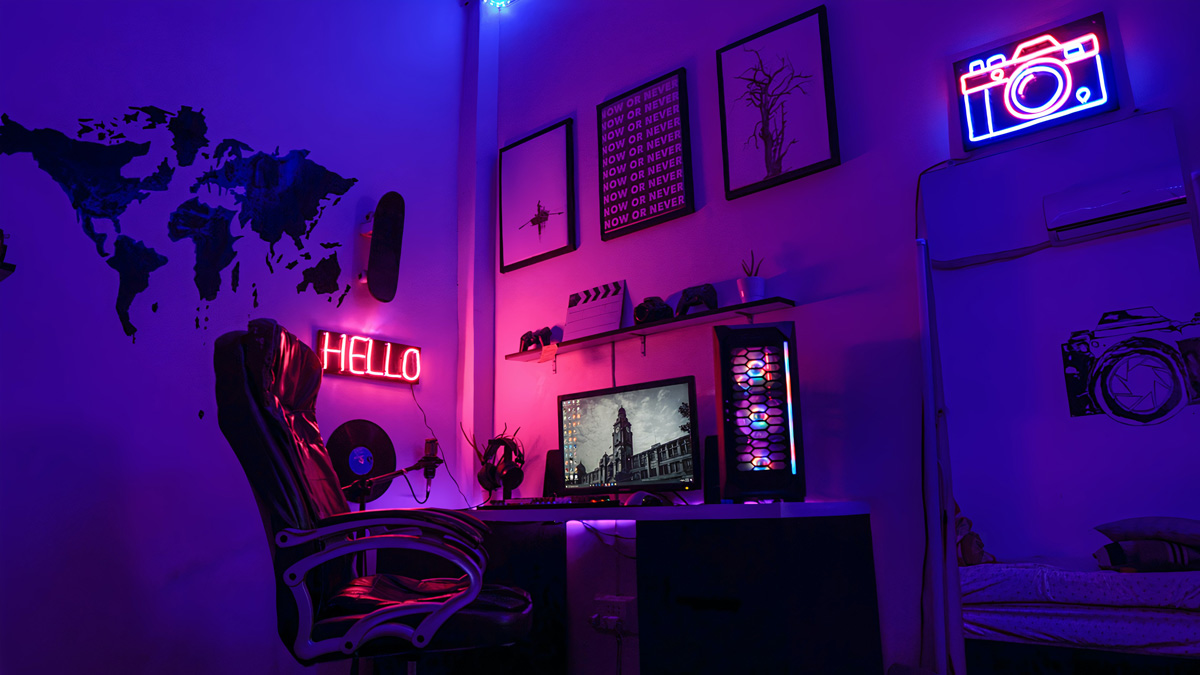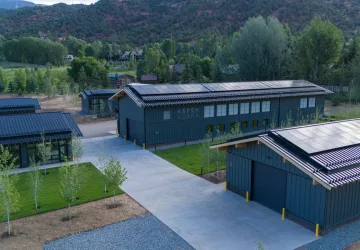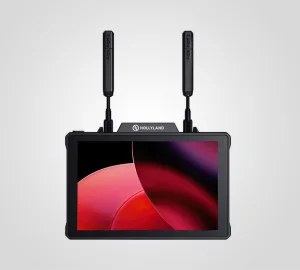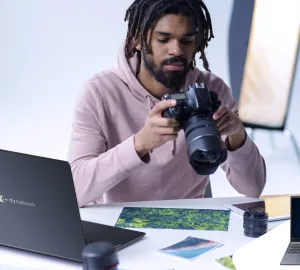When gaming becomes a part of your life, there’s always one fundamental question: “How much should I spend on a gaming PC?” The short answer is that the right budget depends on the type of games you’re going to play. This is the major factor that determines how expensive your gaming PC is.
A computer that costs about $400 is considered a cheap gaming PC, while a very good gaming PC setup can be about $2,000. But how to understand what option will be the best for you? Let’s find out how much money you may need to buy a good gaming PC or to build your own one from scratch.

What Is a Good Budget for a Gaming PC?
To budget for a gaming PC, you need to strike a balance between performance, quality, and value. The ideal budget may vary depending on your preferences, intended use, and current pricing. That said, here are a few factors you should consider when budgeting for a gaming PC:
- Performance Goals: Select what level of gaming performance you want to achieve. Do you want to play the newest AAA games at ultra-high settings and high frame rates, or are you happy with smooth gameplay at medium settings? Your budget’s impact on your targeted performance level will be significant.
- Components: The motherboard, power supply, CPU (central processing unit), GPU(graphics processing unit), RAM (random access memory), storage, and other essential parts make up a gaming PC. Based on how important each component is for a good gaming experience, divide your spending accordingly. The GPU typically has the biggest impact on gaming performance. Therefore, it’s usually a good idea to allocate a sizable percentage of your budget here.
- Future-Proofing: Think about how future-proof your system should be. Your gaming PC may last longer before it needs major upgrades if you spend a little more upfront on higher-end components.
- Monitor Resolution and Refresh Rate: The gaming performance you require will depend on the resolution (1080p, 1440p, 4K) and refresh rate (60Hz, 144Hz, 240Hz) of your monitor. More powerful components are required for higher resolutions and refresh rates.
- Cost of Peripherals: Budget for accessories such as a gaming keyboard, mouse, monitor, and headset. These could raise the setup’s overall cost.
- DIY vs. Pre-built: When opposed to purchasing a pre-built system, building the PC yourself can frequently result in cost savings. Pre-built systems, however, could come with warranties and provide convenience.
- Market Conditions: Depending on availability and demand, the cost of PC parts can change. Be ready for unexpected price adjustments that can have an impact on your spending plan.
- Upgrade Path: If you intend to upgrade your PC in the future, think about this. When you wish to increase performance, investing in a system with upgradeable components (such as a motherboard with RAM expansion slots or a faster CPU) will save you from having to start over.
How Much Is a Good Gaming PC?
The cost largely depends on what you want from your new gaming computer. The average gaming PC is about $800 to $1,000, but if you want to run current AAA games on max FPS settings, you should be ready to pay much more.
The more your requirements for a computer, the higher its cost will be. If your finances don’t allow you to have a graphics card or generally the PC build you want, you can consider loans for computers. Because modern AAA games are much more demanding on performance than, for example, World of Warcraft or League of Legends. The type of games and expected performance directly affect the price.
How Much Is a Good PC for Gaming in 720p
A good gaming PC with 720p resolution can be achieved on a moderate budget. For an enjoyable gaming experience at this resolution:
- Opt for a mid-range CPU like AMD Ryzen 5 or Intel Core i5.
- Choose a budget-friendly graphics card such as NVIDIA GTX 1650 Super or AMD RX 5500 XT.
- 8GB of RAM is sufficient, but 16GB offers better multitasking.
- Combine a 240GB-500GB SSD with a larger HDD for storage.
- Pick a compatible motherboard with good connectivity.
- Ensure a reliable power supply and a well-ventilated case.
- Count a 720p, 60Hz monitor, and other peripherals.
Budget range:
- Entry-Level: $500 – $700
- Mid-Range: $700 – $1,000
What Is a Good Budget for a Gaming PC in 1080p
If you’re looking to build a gaming PC that gives you realistic 1080p gaming, you can’t save too much. The cost of such a device will depend on your tastes and, of course, the market. Component prices may vary from store to store and state to state.
Entry-Level: $700 – $900
For gamers who wish to play the most recent games in 1080p at medium settings, this price range is ideal.
A mid-range CPU (such as AMD Ryzen 5 or Intel Core i5), an affordable GPU (such as NVIDIA GTX 1660 or AMD RX 5500 XT), 8GB to 16GB of RAM, a combination of SSD and HDD storage, and a respectable power supply are examples of components in this price range.
Mid-Range: $900 – $1,200
You can play 1080p games at better settings and even test out some basic VR experiences with a bit more budget.
Better cooling, 16GB of RAM, quicker storage (bigger SSD), and a better GPU (such as the NVIDIA GTX 1660 Ti or AMD RX 5600 XT) are all possible at this price.
High-End: $1,200 – $1,800+
A purchase from this price range offers superb 1080p gaming with high settings and frame rates.
A more potent CPU (such as AMD Ryzen 7 or Intel Core i7), a mid-range to high-end GPU (such as NVIDIA RTX 3060 or AMD RX 6700 XT), 16GB to 32GB of RAM, additional SSD storage, and perhaps customization for looks and cooling are examples of components.
How Much Is a Good PC for Gaming in 1440p
To build a capable gaming PC for 1440p resolution, you’ll need a higher budget for powerful components:
- Choose a mid- to high-end GPU like the AMD RX 6700 XT or NVIDIA RTX 3060 Ti.
- Select a powerful CPU like the Intel Core i5-11600K or AMD Ryzen 5 5600X.
- Aim for fast SSD storage (500GB–1TB NVMe SSD) and 16GB of RAM.
- Choose a motherboard with enough cooling and expansion capabilities.
- A 1440p, 144Hz display, a dependable PSU, and effective cooling are all requirements.
Budget range:
- Mid-Range: $1,200 – $1,600
- High-End: $1,600 – $2,500+
What Is a Reasonable Gaming PC Cost for Gaming in 4K
If you’re going to play games in 4K, get ready to shell out. Building a 4K PC will require a significant budget. This is due to the rather high requirements for equipment:
- Opt for a high-end GPU like NVIDIA RTX 3080 or AMD RX 6800 XT.
- Choose a powerful CPU such as AMD Ryzen 7 5800X or Intel Core i7-11700K.
- Aim for 16GB+ of fast RAM and a 1TB NVMe SSD.
- Pick a compatible motherboard, reliable PSU, and efficient cooling.
- Invest in a quality 4K, high-refresh-rate monitor.
Budget range:
- High-End: $2,000 – $3,500+
- Enthusiast: $3,500 – $5,000+
Should I Build a New Gaming PC or Buy a Pre-Built One?
Whether you decide to build a new gaming PC from scratch or purchase a pre-built one relies on your own tastes, technical proficiency, financial situation, and particular needs.
Building a New Gaming PC
Pros
Customization: You can select components for your PC based on your needs and tastes if you build it yourself.
Performance and Value: DIY constructions usually provide better performance for every dollar spent since you can prioritize the elements that are most crucial to your needs.
Learning Experience: You’ll gain a better grasp of the hardware and be able to identify and resolve issues on your own after building your own PC.
Cons
Time and Effort: Building a PC can be more difficult than you might think. Therefore, you can spend quite a lot of time on this if you are a beginner.
Warranty Challenges: Each component has a different warranty, so if you have a problem, you will have to contact several manufacturers.
Technical Skills: To properly connect all components, you will need basic technical skills.
Buying a Pre-Built Gaming PC
Pros
Convenience: Pre-built PCs are easy to get out of the box, saving a lot of time and effort.
Warranty and Support: Almost always, with a computer, you get a general warranty and technical support.
Less Technical Knowledge Needed: You don’t need in-depth technical expertise to get started with a pre-built system.
Cons
Limited Customization: Pre-built PCs can limit you considerably. You can get a good graphics card but not a powerful enough processor, or vice versa.
Potentially Higher Cost: Pre-builts can be more expensive.
Potential Bloatware: Some pre-built PCs have software that you don’t need or have an inappropriate operating system. You can change it, but you have already paid for it.
How Much to Spend on a Gaming PC You Build
A number of factors will affect the price of your gaming PC, from your goals to the components you choose. However, a PC build will allow you to be more flexible in your spending and get a PC that is much better suited to your personal requirements. To decide how much money to spend, consider the following factors:
Gaming Goals
Determine the performance level you require. To achieve this, consider your gaming preferences and the games you intend to play. Your PC must be capable because different games require different hardware configurations.
Resolution and Settings
Establish the necessary graphics settings and resolution. Please be aware that there is a significant difference between 1080p and 4K, both in terms of aesthetics and, obviously, in terms of cost.
Future-Proofing
Additionally, you must choose how advanced your gaming PC should be. Pay attention to the newest components if you want to maximize the length of its life. Your PC will last longer without significant improvements, but they will cost more.
Component Allocation
You should order your priorities so that the elements that impact gaming performance come first. This specifically pertains to CPUs and GPUs. It is better to spend more money on these crucial components. You can play at high graphics settings, for instance, if you have a good graphics card.
Peripherals and Accessories
Remember to budget for peripherals like a monitor, keyboard, gaming mouse, headset, and even gaming chair. These items contribute to your overall gaming experience.
Budget Ranges
- Entry-Level: $500 – $800. Suitable for casual gamers and esports titles at lower settings.
- Mid-Range: $800 – $1,500 Offers solid 1080p gaming at high settings and can handle some 1440p gaming.
- High-End: $1,500 – $2,500+ Provides excellent 1440p or even 4K gaming with high settings and ray tracing capabilities.
Ways to Cut The Cost of Your Gaming PC
If you assemble the computer yourself, you can save money. Here are a few things that can keep the cost of a gaming PC down without sacrificing quality.
Prioritize Components: The CPU and GPU are the two most crucial components for gaming. Give these components more of your cash, and think about choosing slightly less expensive options for peripherals, storage, and RAM.
Consider Previous-Generation Components: Consider a little older versions rather than purchasing the most recent and cutting-edge components. GPUs and CPUs from previous generations frequently offer superior performance for less money.
Opt for AMD Ryzen Processors: AMD Ryzen processors are an affordable option for gaming rigs because of their superior performance to price ratio.
Buy Used or Refurbished: Think about buying refurbished or gently used components from reliable sources. This can result in significant cost reductions while maintaining consistent performance.
Shop Sales and Deals: Keep an eye on seasonal sales, holidays, and special promotions offered by retailers. This can lead to substantial savings on components.
DIY Assembly: Building the PC yourself saves on assembly costs that pre-built systems come with. Many retailers also charge a premium for assembling components.
Limit Aesthetic Expenses: While elaborate casings and RGB lighting can improve the appearance of your PC, they also increase the cost. Choosing a less expensive case and skipping frills like RGB will help you save money overall.
Consider Smaller SSDs: Invest in a more affordable SSD for your operating system and important games, then add a larger HDD for extra storage.
Optimize RAM: Start with a smaller amount of RAM and upgrade later if needed. Most games are fine with 8GB or 16GB to start.
Future-Proof Wisely: Although it’s important to plan for future upgrades, don’t spend too much on equipment you might not use to its full potential for several years.
Reevaluate Monitor Choice: If you’re on a tight budget, consider a 1080p monitor instead of 1440p or 4K. A monitor with a lower resolution can still offer a great gaming experience while reducing costs.





